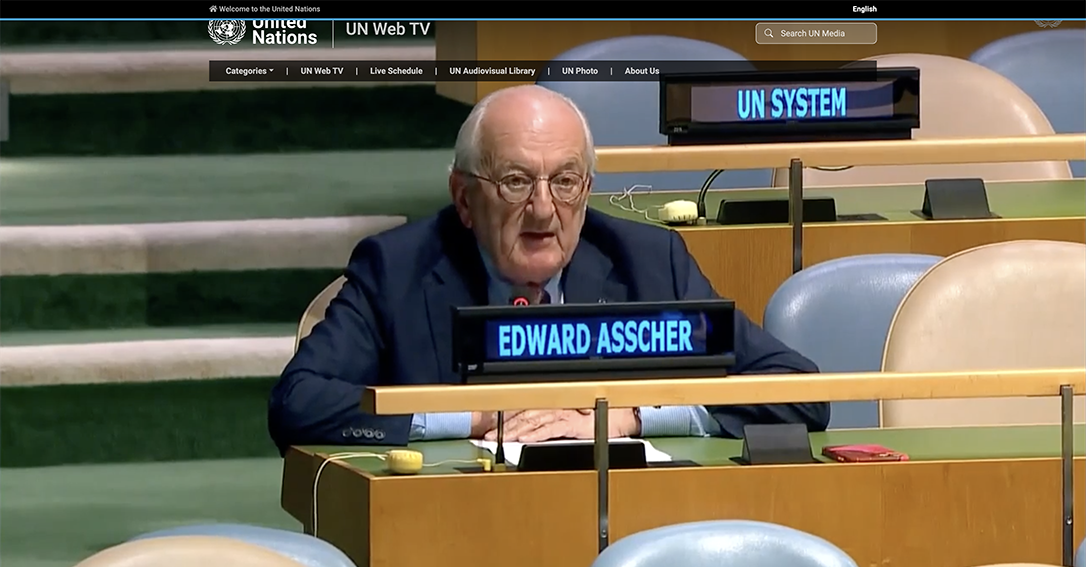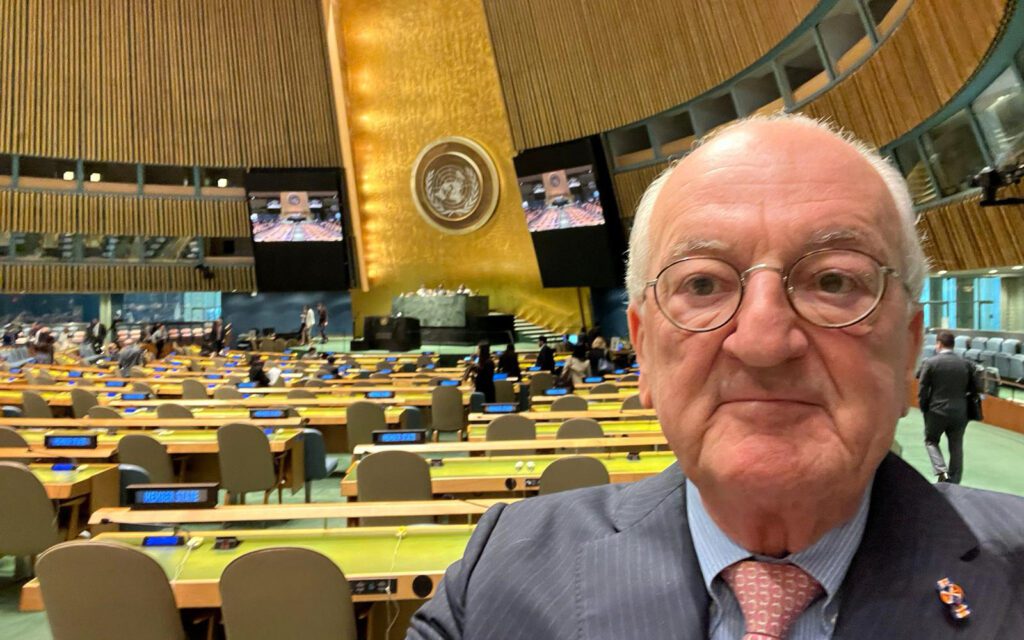WDC President addresses challenges of Kimberley Process
during special meeting of UN Economic and Social Council
MARCH 20, 2022

ABOVE: WDC President Edward Asscher addressing the special session of the United Nations Economic and Social Council in New York on March 18, 2022.
Representing the world diamond industry, WDC President Edward Asscher addressed the challenges faced by the Kimberley Process before a special session of the United Nations Economic and Social Council (ECOSOC), which took place in the UN General Assembly Chamber in New York on March 18, 2022.
The meeting, which was chaired by the ECOSOC President, Collen Vixen Kelapile, and featured a keynote address by the President of Botswana, Mokgweetsi Masisi, focused on the topics of natural resources, peaceful societies and sustainable development, with a focus on lessons from the Kimberley Process. It considered interlinkages between natural resources and the Sustainable Development Goals, exploring the implications for job creation, inclusive economic growth, revenue generation, food security, the reducing of inequalities and environmental sustainability.C
Noting that the purpose of the Kimberley Process is to prevent conflict diamonds from accessing the legitimate supply chain, and by so doing is meant to preserve the peaceful and secure environments necessary for countries and communities to leverage their natural resources to achieve sustainable development, the WDC said it has only been partially successful in supporting this objective.
“[W]hile it addressed civil wars in Africa, the Kimberley Process never covered all systemic challenges to safety and security in the mining regions,” he said.
RIGHT: WDC President Edward in the General Assembly Chamber of the United Nations, before the start of the ECOSOC special session on March 18, 2022.
The challenges of the KP became particularly apparent following the onset of the COVID pandemic, which the WDC President said had a very negative effect on miners in Africa and the polishing centers in India.
“The KP can only help to improve the mining and working conditions if the definition of conflict diamonds is expanded, which should include violations of labor and social rights, and not be limited,” he stated.
It is for such reasons that the industry is adamant that the conflict diamonds definition be expanded, he said.

“The beneficiaries of a strengthened Kimberley Process would be those same stakeholders,” he stated. “Providing safer working environments, they would be better equipped to optimize the potential of their natural wealth, building sustainable economies and societies. In this way the KP will not leave any stakeholder behind.”
Mr. Asscher concluded his address by referencing the second to last of the 17 Sustainable Development Goals. “SDG 16 calls for the promotion of peaceful and inclusive societies for sustainable development, equal access to justice and the building of effective, accountable and inclusive institutions. An upgraded Kimberley Process has the potential to meet that goal,” he said.





